- Home
- Patrick Robinson
Scimitar SL-2 (2004) Page 30
Scimitar SL-2 (2004) Read online
Page 30
“It’s important that Paul tells our story just the way we want it,” emphasized Arnold Morgan. “We do not want some newsroom rewrite asshole speculating and jumping to conclusions. This White House already has a reputation for press leaks, and we don’t want anyone releasing information until we’re good and ready, and we have the situation under control.”
He glanced at his watch. It showed five minutes before four. He walked out through the Oval Office door and past the ex-President’s secretary to tour the building and inform all heads of departments to report to the Situation Room. Since internal communications were down, he ordered one of the Marine guards to walk down to the Press Room and inform those present that there would be a Presidential Address in twenty minutes in the White House Briefing Room.
By now, Admirals Dickson and Doran, in company with Generals Boyce and Clark, had arrived back in the Oval Office. Arnold Morgan, already seated behind the only available desk—that of the former President—was writing fast on a legal pad, on which the former occupant had been drafting a personal speech to the Third World Initiative.
Still scribbling, he spoke without looking up. “Okay, I’ll take Frank Doran with me to the Situation Room, where I’ll stress the enormous task of the Navy to the senior White House Staff. I think everyone else should go with President Bedford and stand behind him on his port-and-starboard quarter. General Scannell and General Boyce on his four o’clock, Admiral Dickson and General Clark on his eight. That’s the Head of the Pentagon, the Head of NATO, the Head of the Navy, and the Head of the United States Marine Corps. Solid, right?”
Just then, Paul Bedford walked in, and Admiral Morgan immediately stood up, nodded, and said, “Mr. President…I’m just drafting a few notes for your address…They’re only notes…but we have no time…You’ll just have to wing the speech, but it’d be a good idea to stick to the outline here…
“Stress the nervous collapse and subsequent resignation of the President, who is currently under medical care at Camp David…Tell ’em how shocked we all are…then come clean over the Hamas threat, tell ’em the whole story, not in detail, but start with Mount St. Helens, then the demands of the terrorists…” His finger ran down the notes on the legal pad. “Then the threat that convinced us of the imminent danger of our country, when they blew Montserrat. Explain the terrible danger, the silent terrorist submarine with its nuclear-warhead guided missiles, the vulnerability of Cumbre Vieja, and the certainty of the tsunami, if they hit the volcano.”
Paul Bedford nodded as firmly as he was able to. Right now, in his own mind, he was not so much President of the United States as a Naval Lieutenant receiving a briefing of the most staggering importance from one of the most senior Admirals ever to serve his country.
Arnold ripped the page off the writing pad and handed it to the new Chief Executive. He had printed everything in bold capitals, including the first two sentences, then a clear synopsis of the rest.
“Is that it?” asked President Bedford.
“As best as we can do,” said Arnold agreeably. “You’re on parade in fifteen minutes, and I’m out of here with Frank, right now.”
“Okay, sir,” said Paul. “I can follow this.”
“You can call me anything you like in this room,” replied Arnold. “But for Christ’s sake don’t call me ‘sir’ in public!”
“No, sir,” said Paul Bedford, laughing, despite the gravity of the situation.
“And, Mr. President…” said Arnold, as he headed for the door. “Remember one other thing…when Sir Winston Churchill demanded an entire reorganization of the Navy fleets in the North Atlantic…he told his First Sea Lord if it wouldn’t fit on one side of one sheet of paper, it hadn’t been properly thought out.”
And with that, he was gone, the Commander in Chief of the Atlantic Fleet, with Admiral Frank Doran somewhere in his wake.
“Jesus,” President Bedford said to himself. “Is he something, or what?”
And then, to everyone’s surprise, Admiral Morgan’s head popped back around the door. “Oh, Paul, I forgot. You’d better fire Defense Secretary Schlemmer and NSA Romney right now, and then Hatchard, right after he’s released from my briefing. Handwritten notes thanking them for all they have done. One side of one sheet, right?”
“Okay, Arnie, you got it,” replied the President of the United States, slipping into the easy informality enjoyed by men under severe stress. “Is it okay if I borrow your desk?”
Still chuckling, Admiral Morgan headed for the West Wing basement, where he found a scene of extraordinary restlessness. The heads of White House Departments had mostly arrived. Protocol, Secret Service, Communications, Catering, the chief Butler, Security, Transportation, the Press Office, the State Department, Speech Writers, Bill Hatchard, and indeed the former President’s secretary were crowding into the room. All requesting information, yearning to know what was going on. The four Marine guards had taken up positions outside the door, and two more guarded the exit from the elevator. With the correct credentials, they would let you in, but no one was leaving. Not until the Presidential Address was completed and on television. A small pile of surrendered cell phones occupied a desk behind the principal Marine detail.
Arnold Morgan and Admiral Doran made their way into the soundproof teak-paneled conference room that, aside from its central table, was filled with secretarial desks, computers, and video-conferencing telephones. None of this was currently active, though staff members were hurriedly claiming the desks, since the packed gathering could plainly not fit around the main table.
Admiral Morgan moved into the big chair once occupied by President Reagan. He dragged another seat next to him for the C in C Atlantic Fleet and called the meeting to order by banging his open palm down on the polished surface of the conference table.
“For a very few of you, this may seem a bit like old times. For the rest of you, my name is Arnold Morgan, former Admiral in the United States Navy, former Director of the National Security Agency, former National Security Adviser to the President.
“I’m not precisely sure how fast rumors move around here these days, but I would like you all to know that President Charles McBride resigned within the last hour for health reasons. According to the Constitution, the Vice President has instantly assumed the Oval Office, and he was sworn in by the man appointed to do so by the Supreme Court of the United States, Judge Moore. The ceremony took place in the Old Executive Building, and President Paul Bedford swore to uphold the Constitution of the United States.
“The witnesses present were Senator Edward Kennedy…the Chairman of the Joint Chiefs, General Scannell…the Chief of Naval Operations, Adm. Alan Dickson…the Commander in Chief of the Atlantic Fleet, Adm. Frank Doran, who is seated here beside me…the Supreme Allied Commander of NATO, Gen. Bart Boyce…the Commandant of the United States Marine Corps, Gen. Kenneth Clark…and myself.
“The press will learn of the change in Government inside the next ten minutes, and you will all see President Bedford’s address on the screen in this room shortly.
“There will of course be changes in staff, but none where we are able to rely on the old order. The most important thing that I must tell you, though, is that the East Coast of this country is at present under the most terrible terrorist threat in U.S. history. Worse, immeasurably, than 9/11.
“It was this threat that caused Charles McBride to suffer what his doctors consider to be a nervous breakdown. He willingly and selflessly stepped aside as the pressures on him mounted, aware that he has no military experience and that his Vice President Paul Bedford, who served as a Navigation Officer in a guided missile frigate during a five-year term in the United States Navy, might be a better leader for the U.S. in this time of crisis.
“The former President is resting under medical supervision at Camp David right now. The First Lady is with him and they will not be returning to the White House.
“As to the threat we face, in the simplest terms, there is a Russian-bu
ilt nuclear submarine, loose in the North Atlantic crewed by a group of Hamas terrorists.”
The Situation Room was absolutely silent as Admiral Morgan briefly outlined the situation. He shook his head. “And we know from the events of the last few months,” he said, “that Hamas has this capability. They exploded Mount St. Helens, and last night they carried out their second threat, accurate to the minute, by exploding Montserrat down in the Caribbean. Their latest communiqué says they will hit La Palma on October 9.
“We need to find that submarine, most importantly, but we have already started the preliminary stages of an evacuation of the entire East Coast to high ground, just in case we don’t find it. By the end of the day, the U.S. Army, National Guard, and the various metropolitan police forces will unobtrusively control the streets to prevent a panic after the President’s TV address. From the moment the Cumbre Vieja erupts, it will take nine hours for the tsunami to hit New York Harbor. And those tidal waves don’t break…They’ll just keep rolling.
“Your new President has appointed me Supreme Commander of all the United States forces engaged in this operation for the next two weeks. During this time we will begin evacuating the nation’s treasures, its museums, its historic papers, its Stock Exchange in New York, and its schools. I shall be working closely with President Bedford, from the Oval Office, and with the five senior commanders who witnessed the inauguration ceremony an hour ago.
“Right now, I will not be taking questions, and I would like someone to turn on the television sets around the walls and tune in to one of the networks to hear the Presidential Address…Admiral Doran and I will remain here to listen with you.”
The “Sit Room” remained stunned. No one spoke, but people moved quietly, finding places in front of the television screens.
Meanwhile, upstairs in the Briefing Room, the fifty or sixty members of the White House Press Corps—the journalists Marlin Fitzwater referred to as “The Lions”—were growing more restless by the minute. None of them had a clue what was taking place, and although a few photographers were plainly bored senseless by the whole procedure, dozing in the fourth row, there was an unmistakable growling at the back of the room, where the wire service reporters operated.
This was a most unusual call to a briefing, issued out of the blue at twenty minutes’ notice. The reporters were huddled together, discussing possibilities. The favorite forecast was that President McBride had recognized the state of emergency on the island of Montserrat and was sending aid. Big deal.
However, journalists of a more thoughtful nature had noticed the eight Marine Corps guards in position in front of the dark wooden dais. That hinted at something more than aid to Montserrat. But it did not suggest the imminent unleashing of the biggest news story of the year.
A few more minutes slipped by and the level of restlessness grew. It was always the same at feeding time. The Lions began to lose their cool if the keeper was late. Actually, it wasn’t his lateness that was relevant. It was the pack’s perception of lateness that mattered.
Where the hell is he…? Christ, it’s getting too late for the afternoon papers…Stupid time to call a briefing anyway…Who the hell cares if he sends the taxpayers’ money to Montserrat?
By 1625, the room was buzzing. And the sudden appearance of Lee Mitchell, Vice President Bedford’s spokesman, had no effect on the noise level whatsoever. But when he walked up to the dais, turned on the microphone, and asked for their attention, they gave it reluctantly.
Mr. Mitchell, a tall young former political reporter for the Atlanta Journal Constitution, came right to the point. “I am here to announce formally that Charles McBride has resigned from the office of President of the United States less than one hour ago. At seven minutes before four o’clock, under the precise requirements of the Constitution, Vice President Paul Bedford was sworn into office.”
The entire room exploded with the shrill, desperate, near-panic-stricken sound of fifty-odd reporters flailing between the quest for more detail and the overriding desire to speak to their newsrooms.
RESIGNED! Whaddya mean resigned? When?…Where?…Why…? How?…Where is he? Is he still in the White House? What caused it?
It took a full two minutes for the row to subside, and only then because it was obvious that Lee Mitchell had not the slightest intention of uttering a single word until there was silence once more from The Lions he was supposed to feed.
“Thank you,” he said, carefully. “There will be no questions at this briefing. But I will tell you that former President McBride is resting under medical supervision at Camp David. He has suffered an apparent nervous breakdown and may not recover fully for some weeks. The First Lady is with him. Under the circumstances, he felt he had no options but to resign.”
Again, the suppressed pandemonium of The Lions was let loose. Regardless of the “no questions” edict, they stood and roared…This is a national issue…The people have a right to know…What do you think I’m gonna tell my readers…What kind of a nervous breakdown…? Has he been ill for long…? This is America not Czarist Russia…C’mon Mitchell, you’re paid to tell us what the hell is happening to the President of the United States…
The journalists did have some power, and some of them had more than a few brains, but nothing to match the shrewd orchestration masterminded by Morgan, Scannell, and Bedford. And at this point the scene shifted. Lee Mitchell moved aside to formally greet the Chairman of the Joint Chiefs, then in quick succession appeared the Head of the Navy, the military Supreme Commander of NATO, and the Commandant of the United States Marine Corps, who all took up the positions allotted to them by Arnold Morgan, port and starboard quarters to the dais.
And as they did so, the noise from The Lions subsided, to be replaced by a more dignified sound. Through the loudspeaker system came the unmistakably familiar tones of the band of the U.S. Marines playing “Hail to the Chief,” loudly, robustly, summoning that overwhelming sense of patriotism within the chest of every American in the room.
By now the White House phone lines were back on, and the place was connected to the outside world by a zillion kilowatts. The television cameras were rolling, commentators were speaking, the wire service reporters were filing copy from the back of the room. Everyone else, confined to their personal seats by both protocol and tradition, was scribbling.
And into this media feeding frenzy stepped the heavyset, balding Virginian Paul Bedford, making the short walk to the dais in time to the music.
He faced the gathering with outward calm, flanked by the High Command of the U.S. military standing behind the armed Marine guards. He stared at the phalanx of microphones arrayed before him, and then said firmly, “It is my honor to inform you that one hour ago, I became the 45th President of the United States of America. As I believe you have been told, President McBride was compelled to resign at short notice for reasons of health. It was both unexpected, and unfortunate, and we all wish him a swift and full recovery.
“Meanwhile, the business of government must continue, and it is my most unhappy duty to inform you that today we stand in perhaps the worst danger this nation has ever faced. I will not take questions, but I will endeavor to outline the scale of a forthcoming terrorist attack we believe will happen…”
“Any connection between the attack and the President’s resignation…?” someone yelled.
“I wonder if you’d be kind enough to let my secretary know your native tongue?” replied the President. He was reading off Arnold Morgan’s only offering of a riposte to unwanted questions.
The laughter subsided, and Paul Bedford never missed a beat. “Four months ago, we received a communiqué from the Middle East that the terrorist organization Hamas had been responsible for the eruption of Mount St. Helens in Washington State. Our investigations subsequently showed this was likely true.
“We were then informed that we had just a few weeks to completely remove our military presence in the Middle East and to force Israel to vacate the occupied t
erritories on the West Bank. The Administration, needless to say, was skeptical about the validity of this demand, but cautious. We even moved some troops and ships around.
“However, we received another threatening communiqué, and this one contained a further detail—that if we did not comply, they would do the same to a volcano in the Canary Islands as they did to Mount St. Helens.”
A deathly hush had fallen over the Briefing Room, as the journalists waited for President Bedford’s next words.
He paused for a few moments longer, fervently wishing he had either Winston Churchill or Arnold Morgan passing him notes, never mind the one-side-one-sheet decree.

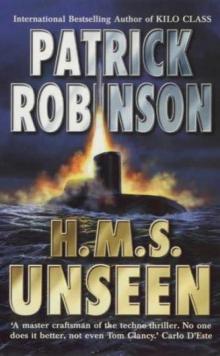 H.M.S. Unseen am-3
H.M.S. Unseen am-3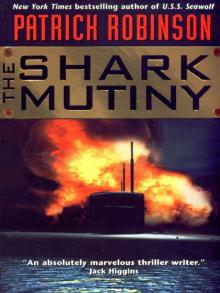 The Shark Mutiny (2001)
The Shark Mutiny (2001) Hunter Killer am-8
Hunter Killer am-8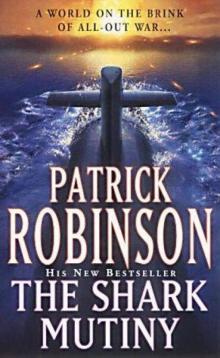 The Shark Mutiny am-5
The Shark Mutiny am-5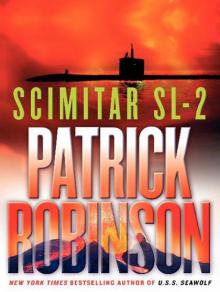 Scimitar SL-2
Scimitar SL-2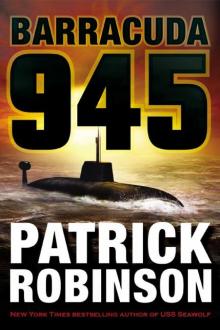 Barracuda 945 am-6
Barracuda 945 am-6 Hunter Killer
Hunter Killer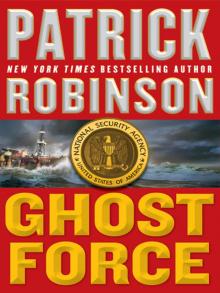 Ghost Force
Ghost Force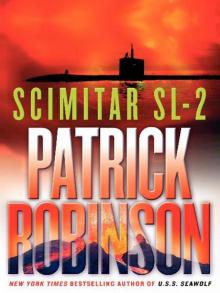 Scimitar SL-2 (2004)
Scimitar SL-2 (2004) Kilo Class am-2
Kilo Class am-2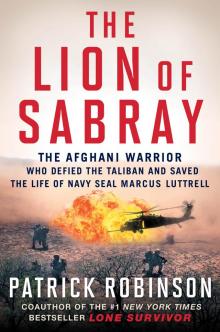 The Lion of Sabray
The Lion of Sabray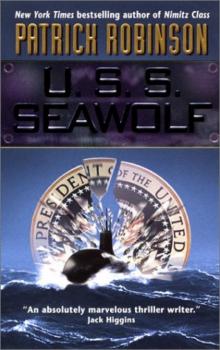 U.S.S. Seawolf am-4
U.S.S. Seawolf am-4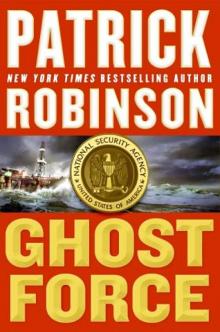 Ghost Force am-9
Ghost Force am-9 To the Death am-10
To the Death am-10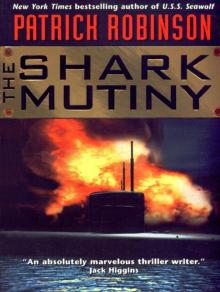 The Shark Mutiny
The Shark Mutiny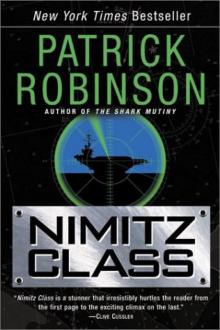 Nimitz Class am-1
Nimitz Class am-1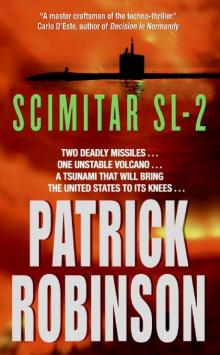 Scimitar SL-2 am-7
Scimitar SL-2 am-7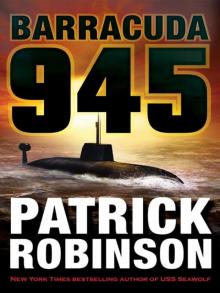 Barracuda 945
Barracuda 945 Intercept
Intercept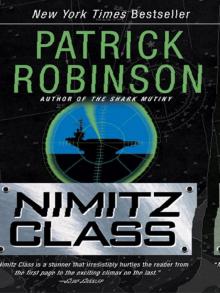 Nimitz Class (1997)
Nimitz Class (1997)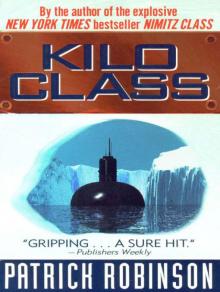 Kilo Class
Kilo Class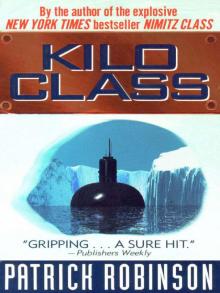 Kilo Class (1998)
Kilo Class (1998) Diamondhead
Diamondhead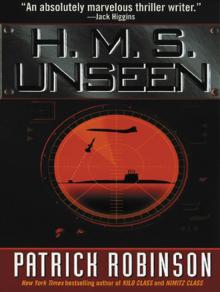 H.M.S. Unseen
H.M.S. Unseen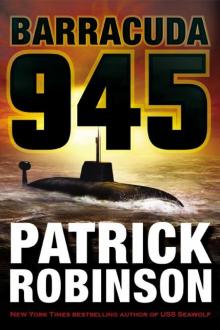 Barracuda 945 (2003)
Barracuda 945 (2003)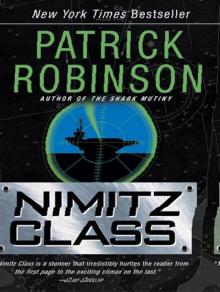 Nimitz Class
Nimitz Class The Delta Solution
The Delta Solution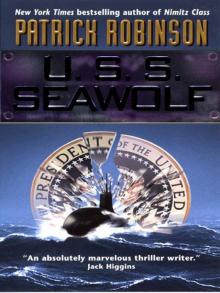 U.S.S. Seawolf
U.S.S. Seawolf